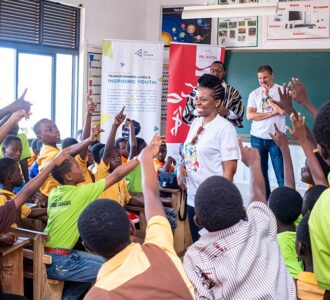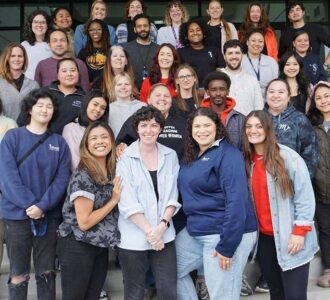Education is the key to Africa’s future. But despite the gains in the decades leading up to the pandemic, it is here that learning gaps remain widest and learning poverty remains greatest.
We founded the Africa Education Medal with HP to give a platform to leaders who are lighting the spark of change. To tell their stories, so that others may be inspired to take up the torch.
The vital work the Finalists for this year’s Africa Education Medal are doing to transform education across the continent, and the common threads that run through it, show some of the greatest challenges that remain in African education. And just why great changemakers like them are rising to it.
Tackling poverty
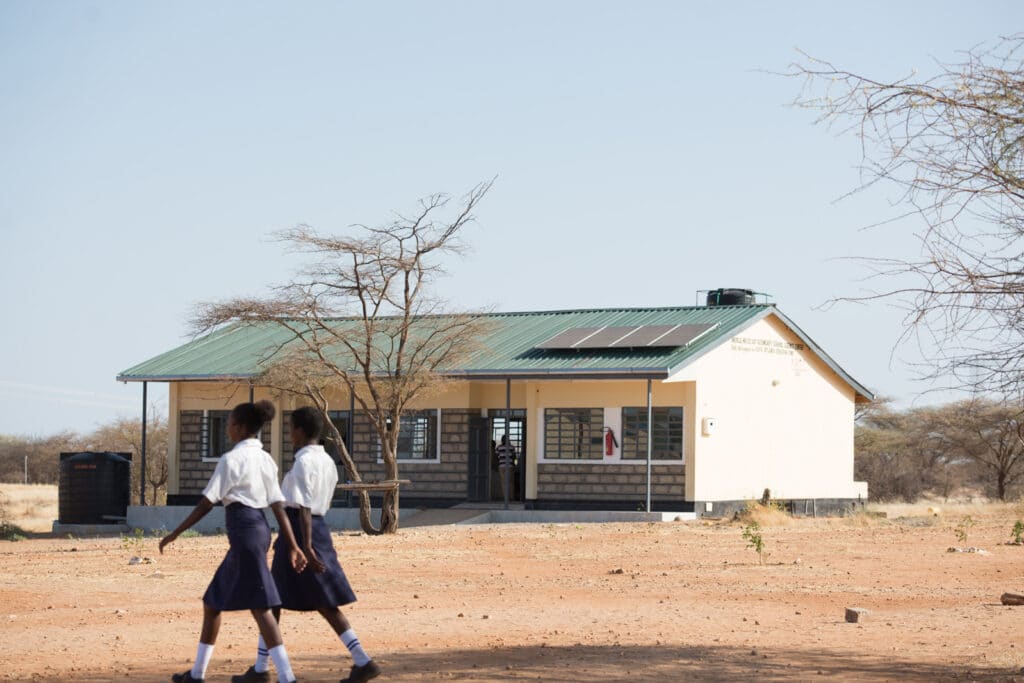
Poverty is the Catch-22 of education. While education is the best route out of poverty, poverty is the greatest barrier to education.
It’s for that reason that tackling the impact of poverty on education and addressing challenges in the regions where they are greatest is such a strong theme among the Finalists of the Africa Education Medal 2024.
Ahmed Kura grew up in the small village of Korr, in the drylands of Kenya, experiencing deprivation first-hand. He was orphaned at a young age and was able to complete high school only with the financial support of an American benefactor. Today, he is the Country Director and Co-Founder of Kenya Drylands Education (KDEF) Fund, a non-profit organisation that strives to improve educational opportunities for underserved populations in the drylands of Kenya.
Operating in an area of extreme poverty, which has an illiteracy rate of 90% and only 4% of classrooms are connected to water, he has partnered with local government and the leaders of the many long-neglected villages in the area to deliver crucial projects to transform education including building nearly 100 classrooms, dormitories, and other vital infrastructure in an area facing a chronic shortage.
Similarly, in Ghana, Mohammed Haroon dedicated his life to tackling poverty in the region he grew up in. Hailing from a tribe in north Ghana where educational challenges remain, his work is focused on improving teaching and learning in the region, where he has opened public schools and colleges of education.
It’s also an issue that Taddy Blecher understands as the CEO and Co-Founder of the Maharishi Invincibility Institute, a multi-award-winning South African skills-to-work educational institution. Growing up in a poor family, education allowed Blecher to succeed, fuelling his passion to help unemployed youth in South Africa gain access to transferable skills through education, training, jobs, and careers, thereby breaking the poverty cycle. He works to support highly marginalised groups, including women, refugees, and those from economically disadvantaged backgrounds.
As a direct result of his work, 24,000 unemployed South Africans have received
post-secondary education, and over 21,000 of them found meaningful employment. These youth – 70% of whom are women – now have combined salaries exceeding R1.715 billion a year and expected lifetime earnings of R59.7 billion. He has also helped educate over 600,000 young South Africans with one-week education and life-skills training courses through the Nelson Mandela Extranet programme.
Meanwhile, Olanrewaju Oniyitan, Founder and Executive Director of SEED Care & Support Foundation, seeks to address the challenge that half of Nigeria’s population is under 19 years old, yet many lack access to quality education. Over 20 million are out of school and 70% of children in school are experiencing learning poverty. Her non-profit supports the affordable non-state education sector to deliver access to quality education for all children by providing advocacy, evidence and a learning network.
The organisation amplifies the role of the affordable non-state sector by giving it a seat at the policy table, working through partnerships to shape system-wide change. It designs, pilots, monitors and adapts innovations, models, concepts and frameworks to local contexts for learning and scale, using the evidence to mobilise and persuade strategic actors to pay attention to the affordable non-state sector both locally, in Africa and around the world.
Breaking down barriers for girls
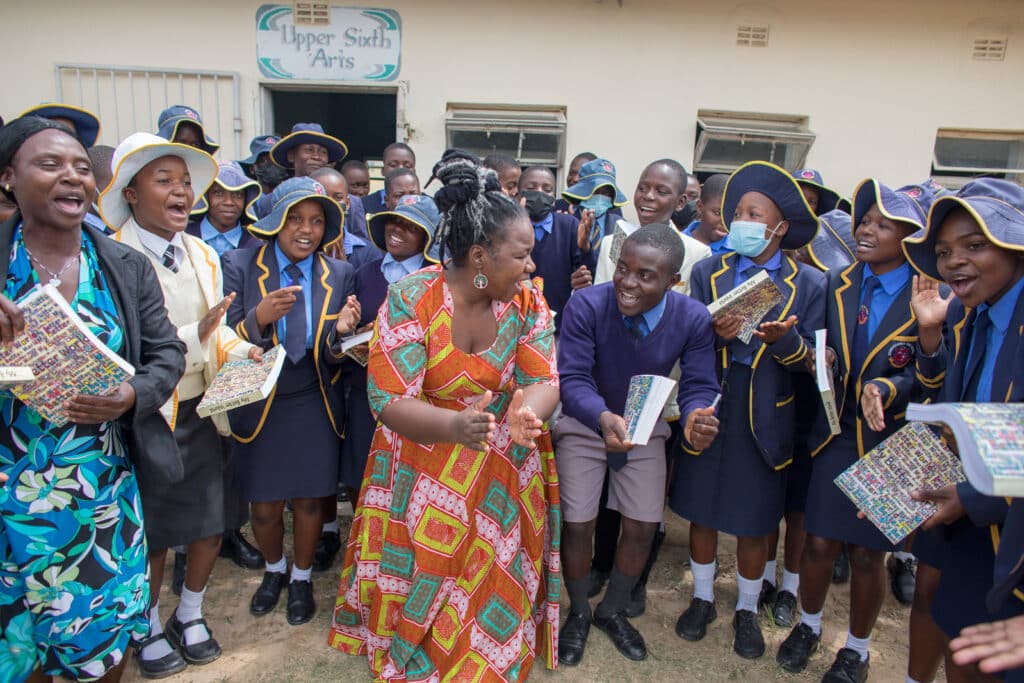
If economics is one of the biggest barriers to education, gender is the other. To this day, 18.8 million girls are out of primary school in Africa. This has a huge cost not just to the children themselves and their futures, but to their communities and society at large.
As such, breaking down barriers for girls in education is one of the major themes that emerged from the work of our Finalists this year.
Few people understand the importance of this more than Angeline Murimirwa, CEO of CAMFED, a pan-African, grassroots-led NGO that tackles poverty, inequality and injustice through girls’ education and women’s leadership. Murimirwa herself was one of the first girls supported by CAMFED to go to secondary school in Zimbabwe, and understands from first-hand experience the hurdles girls face in accessing education. Now CAMFED’s CEO, she is uniquely positioned to bring the expertise of girls and women once excluded from education to inform policy and strategy at every level.
The vast majority of girls in rural Africa never complete secondary school. Their exclusion from education plays out at every stage of a young woman’s life and is passed on to future generations. Murimirwa is leading CAMFED in the delivery of a proven solution that enables marginalised girls to enrol and thrive in secondary school, then graduate into secure livelihoods and positions of leadership.
CAMFED’s model operates at three levels: First, in engaging with school communities to implement a comprehensive support system targeted at the most marginalised girls, tackling impediments to their school attendance and learning. Second, as girls graduate from secondary school, enabling their transition to vocational training and work, and providing a platform for them to step up as leaders and support younger generations of girls. Third, in partnering with governments to embed what works in national school systems, to ensure these better serve the needs of girls. Its model has proven highly successful. For instance, in Zimbabwe, marginalised girls supported by CAMFED were nearly three times less likely to drop out of school relative to peers in comparison schools.
Meanwhile, Nankunda Hope Mwijuka, Founder and Executive Director of Raising Teenagers-Uganda, works to create safe spaces for young people with a focus on menstrual hygiene management for girls. Her life’s mission revolves around empowering girls by advocating for their right to education and good health. Through her work, Nankunda Hope Mwijuka is tackling systemic barriers to education for girls, particularly in regions where cultural norms, economic constraints, and gender biases prevent girls from attending school. By addressing the issue of menstrual hygiene management, which often leads to girls missing school due to inadequate facilities and resources, she ensures that girls can attend school regularly without facing discomfort or stigma.
Teacher training
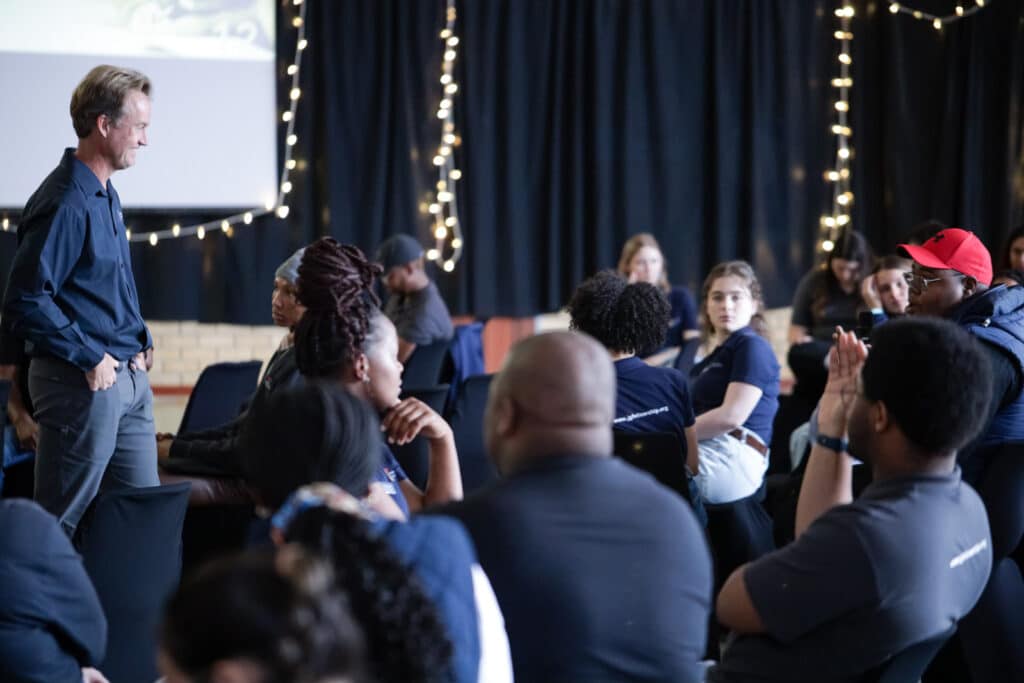
One of the biggest challenges in transforming education in Africa is the lack of qualified teachers. UNESCO data shows 15 million teachers need to be recruited in Africa by 2030.
Therefore, the work of the Africa Education Medal 2024 Finalists in recruiting, training and registering teachers is of vital importance.
Josiah Olusegun Ajiboye is Registrar and Chief Executive of the Teachers Registration Council of Nigeria (TRCN) – the regulatory body committed to the
professional development and registration of qualified and competent educators
across Nigeria. The TRCN seeks to assure excellence and professionalism among teachers at all levels of the nation’s education system. At the TRCN, Ajiboye introduced the Professional Qualifying Examination for Nigerian teachers in 2017. It is now compulsory for anyone who intends to teach in the country to pass this key examination and obtain a teacher’s license and certificate. This has led to marked improvements in teaching and learning in Nigeria.
Also in Nigeria, Hakeem Subair, is the Founder and CEO of 1 Million Teachers (1MT), which has trained over 60,000 educators across more than 20 countries, indirectly impacting approximately 4 million students.
Meanwhile, in South Africa, Julian Hewitt, as the outgoing CEO of the Jakes Gerwel Fellowship (JGF), has worked to create high-impact teachers who will go on to tackle the biggest obstacles to education in South Africa. The organisation works across all provinces in South Africa, in urban and increasingly in rural settings with a focus on tackling geographical disparities and inequities. The Fellowship provides holistic support for those teachers to enter and flourish in schools, especially those serving under-resourced communities so that they can improve learning outcomes over time.
Skills for the future
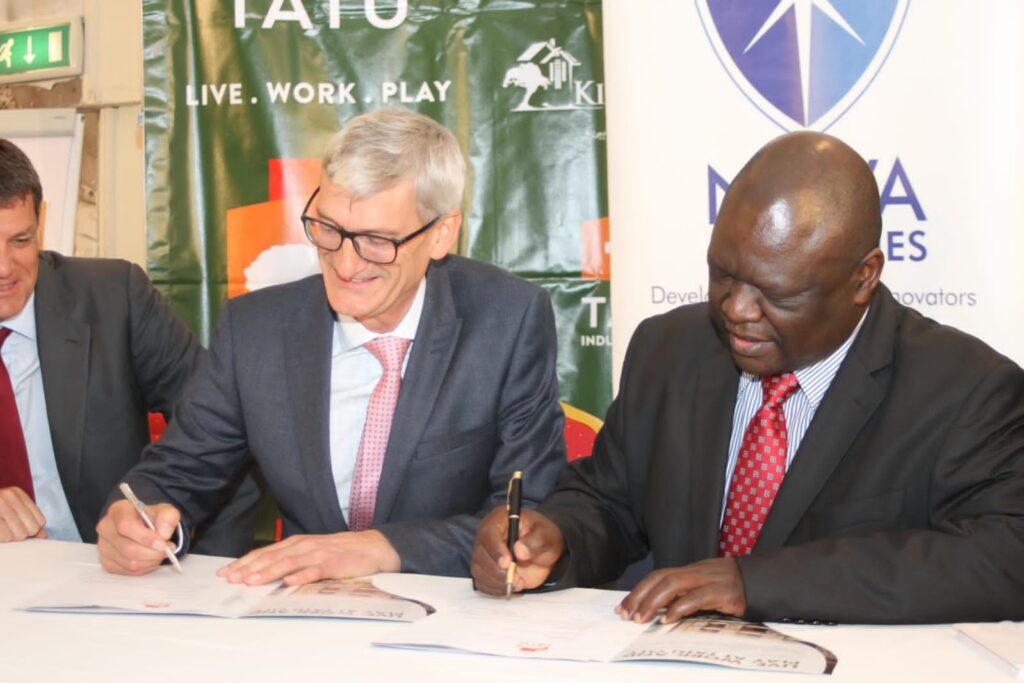
Skilling teachers is one side of the coin. The other is skilling the next generation, in particular, to step up to the great challenges of the future.
This is something that Christopher Khaemba has dedicated himself to as a Kenyan educator and Co-Founder and Director of Nova Pioneer Schools, a pan-African school group with the mission of developing innovators and leaders who will shape the African Century. Khaemba recognises that youth leadership development is critically important to the continent’s future, and therefore to the world. Africa is increasingly the world’s largest source of talent and human capital. However, current and traditional education across the continent – even in relatively well-resourced schools – is highly rote and falls far short of the development of holistic leadership and creative capacities that Africa and the world needs.
Through all his work, Khaemba has helped 20,000 young Africans graduate with an excellent education that has provided them with the holistic character, academic, personal competence, and social capital development they need to shape society. His former students today represent a dynamic community of leadership in all sectors of Kenyan society and across the African diaspora. Notable students include James Mwangi, Kihara Maina, James Mworia, John Gachora, Humphrey Wattanga, Martin Mbaya, Edward Ndopu, William Kamkwamba, Linda Dounia, Eddy Oketch, Fatou Fall, and Oyindamilola Adefisayo.
Following in their footsteps
Poverty, gender discrimination, the lack of teachers, and skilling for the future are four of the greatest challenges African education faces today. But there are many more. And it is our hope that the work of these 10 inspirational individuals will encourage countless others to follow in their footsteps and help forge a better future.

